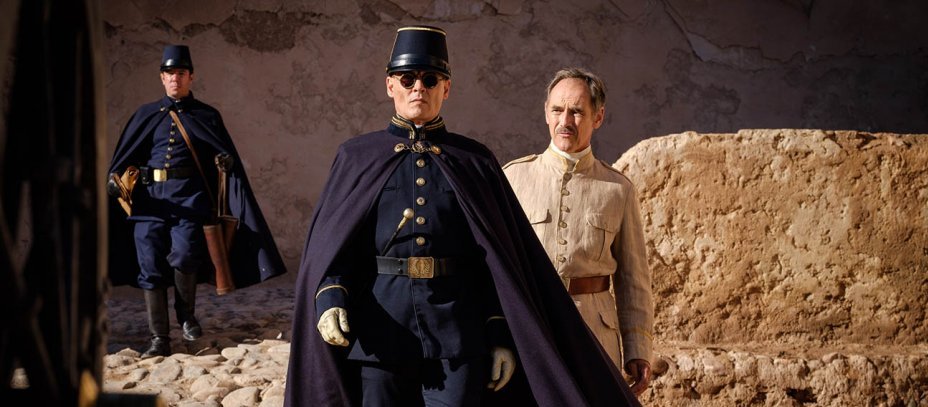Starring Mark Rylance, Johnny Depp, and Robert Pattinson, ‘Waiting for the Barbarians’ tells the story of a magistrate who is given control of an outpost in the remoteness of a desert. As the days pass by, the man is forced to look at his job from a new perspective, wondering if the intentions of the people above him are as righteous and moral as they initially looked like. In contrast to him, we see other loyalists of the state who are ready to do whatever it takes, no questions asked.
While the film doesn’t address anyone by name, nor does it pinpoint the location of the story, it resonates with many issues that currently plague our society. Is that evidence of the film being inspired by actual events? Let’s find out.
Waiting for the Barbarians: An Adaptation of J.M. Coetzee’s Book
No, ‘Waiting for the Barbarians’ is not based on a true story. It is based on J.M. Coetzee’s book of the same name. The title for the movie and the book comes from the poem by the Greek poet C.P. Cavafy.
The story’s peculiarity is that it never specifies what place or time it is set in. In doing this, Coetzee intended to give it a cover of universality. By ascribing a particular year to it, he would have essentially turned it into a historical novel, giving a dated sense to it. But, he wanted to break out of that limitation because the themes of the film are not something that applies solely to the bygone eras. In its essence, the story never loses its touch with current affairs and is just as applicable to our time as it was back in the 80s when the book was first published.
When Coetzee was writing the book, South Africa was still under the oppression of Apartheid, and that’s what inspired the author to write a story about oppression, injustice, and cruelty. Without giving any conventional titles to its heroes, villains, and victims, he essentially expanded the extent to all times before and after. His focus lay on the brutality of colonial powers and their “fear of the Indigenous,” which, time and again, has led them to destroy the native civilization of a place and impose their own ways on it in the name of civility.
The story also underlines the hypocrisy of such imperial thought processes, wherein the civility that they claim they have is lost when they perpetuate brutality against the ones they call “barbarians.” They carry a sense of self-righteousness, thinking they know better than the ones they invade. Through the character of the Magistrate, the writer wanted to uproot that set-in-stone sense of belief that following orders is the only logical way for an official person to move forward, rather than using their own sense of judgment about right or wrong.
The success of the story also lies in the fact that even now, we see a strange relevance to its themes. We still have overbearing government figures who are more focused on their idea of power, influence, and riches and imposing the laws that suit them on the people below they can’t even see from the heights of their ivory towers. The prevailing sense of law and how it is used to justify violence against the commons, especially the ones labeled “the others,” adds to its impact. All in all, it might not be based on a true story, but it is thoroughly ingrained in reality.
Read More: Best Johnny Depp Movies

